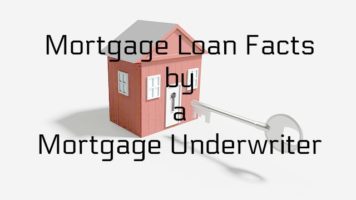When and why mortgage questions to ask the lender are important.
Updating this important post for new borrowers who are thinking about getting a mortgage for the first time. There were terms used years ago that are no longer exist. Even though this changed a few years ago, we want you to be aware of the difference between these documents.
When applying for any mortgage loan it is beneficial and imperative that an applicant ask questions so they are fully knowledgeable of the product, interest rate, origination fee, points, and any closing cost that is being paid in the loan. The lender’s agent/loan officer is required to know and be able to explain all questions. Ask questions, get answers!
The List:
NOTE: THE Good Faith Estimate is now: Loan Estimate THE Truth in Lending (TIL) and final HUD1 is now: Closing Disclosure **These new disclosures are explained in another post.
- Always ask the loan representative to explain any question they ask you that you do not understand why it is being asked. There is never a dumb question, only one that is not asked.
- It is imperative that an applicant understands that they should receive at least the Loan Estimate within (3) days of application, (7) days prior to consummation or closing. If you do not get them, you should call and request them as these disclosures are required by law and you should receive explanations for the cost that is on these forms. The Good Faith Estimate (GFE, OLD FORM): NOW REFERRED TO THE as LOAN ESTIMATE and the Truth-in-Lending (TIL, OLD FORM) form NOW REFERRED TO THE CLOSING DISCLOSURE, and takes the place of the HUD1 as well. THESE UPDATED FORMS- BECAME APPLICABLE IN OCTOBER, 2015. The third disclosure is the Servicing Disclosure which will indicate to you how much of the originators/lender’s volume of loans is serviced by them or if they sell all of their servicing.
- On the LOAN ESTIMATE, there are fees at the top of the form which include the origination cost of the loan. It is lumped together at this present time on the form. This is the origination fee for the lender and if you are using a broker their fee will be included here also. It will also include any application fee, underwriting fee, and processing fee. You should ask the loan representative to explain all fees which are lumped together. It is the law; you have the right…take advantage of this important issue.
- Discount points…these points (if applicable) are listed under the origination fees. The only time you should have discount points is when you have an interest rate change that requires points to get that rate. Meaning, if you chose a rate of interest that is not the going rate for the day you have requested. For example, the rate for the day without any cost would be 4.750%. You desire an interest rate of 4.500%. You will have to pay to get a rate of less than 4.750%. It can be .125%, .250%, .375% .500%, etc., depending upon how low you take it.
- The Closing Disclosure must be delivered to you three (3) business days prior to closing for your examination of all of the fees, and any changes made to the Loan Estimate. This replaces the HUD1 settlement statement, and final Truth In Lending forms previously given.
- You do not have to use the closing agent that the loan originator suggests. Sometimes it can be to your advantage to do so as they may have a special relationship with the closing agent that will make the closing move faster.
- Request a list of all the fees being charged by the Title Company, Closing Agent, and Closing Attorney as they may be identified if you are not sure what might be lumped together. These fees will include the following:
-
- Attorney fee, title search, and document prep. Additional title fees will include the Title Insurance (this can run 1% of the loan amount sometimes; if you want an owner’s policy it is more but much less than the lender’s policy). Note: The Attorney gets a portion of the title insurance fee.
- Additional fees that do not go directly to the Attorney include; transfer tax (state tax stamp fees) and recording fees.
- You will have to establish an escrow account with reserves for hazard insurance, taxes, and possibly mortgage insurance.
- Pre-paid interest will also be included in settlement charges for closing before the end of the month. For instance; if you close on the 15th of the month you will have to pay 15 days of accrued interest. If you close on the 30th, you will only have that day if that is the last day of the month.
- You will have to have a 12-month paid-up policy of hazard insurance at the closing.
Product: you should understand what kind of product you want; at least some of it.
- Meaning a fixed-rate or ARM. If you are obtaining a fixed rate you know that the loan interest rate will stay the same over the life of the loan. An adjustable-rate loan will not. Some ARMs are fixed for the initial 1, 3, or 5 years. Ask questions about the initial interest rate change date, the % of change, and the remaining change dates. Each product is different for ARM and change dates vary accordingly.
- If you choose an ARM loan; ask for the ARM disclosure; it is a requirement of law.
- Do not just take any product you are offered to get the loan and understand that interest rates change daily and sometimes they can rise considerably over a 3, 5, or 10-year span. You must know that you can make the payment comfortably if the rate does go up.
- Ask about the life of the loan cap. This is how much the interest rate can go up over the life of the loan.
- Ask how much the rate can adjust on each adjustment date after the initial change.




Francine Hardaway at Huffington Post predicts for 2011:
The loan modification programs that aren't working will go away. HAMP and HAFA have helped about 300,000 people out of a possible fifteen million foreclosures by the end of 2011. Either there will be another wave of foreclosures, or loans will finally be written down to the current market value of homes, allowing more people to stay in their homes. Probably there will be some of both.
FHA and VA mortgages, which have always been assumable by a borrower who could qualify, may become assumable for buyers who can't, since there's almost no one left in the country who can qualify for a mortgage under the current standards. This will stimulate the lower end of the market, which has gone away since the first-time home buyer credits expired.
The wraparound mortgage and the seller carry back, gone since the days of high interest rates in the early 80s, will be back.
Visit our web site for more real estate information and opportunities.
http://www.kimberlystarksrealtor.com/Real_Estate.html
I am not sure I agree with Francine on all predictions. I do know that short sale is where the mortgage lenders are losing money at the present time, but it would be greater if the underwater/lower values went to foreclosure. I doubt that the warp-around mortgage will come back. Foreclosures are already up per the news,with new home sales down.
Mortgage Lending from where I sit got out of hand and programs similar to the wraparound mtg. is what caused all of the mess. Interest only loans, option ARMs, 80/20, Stated Income,Stated Assets, No Ratio loan…all play a part.
I guess my problem is this…since I underwrote mortgage loans (all products) prior to the mess; why is it a sin for people to actually be able to afford a home before they get one. I feel that if they had to meet the conservative guidelines, it would teach them many things. For instance; saving for a down payment and closing cost, having 2 months minimum reserves after closing.
The mortgage industry is greedy to some extent, the cost of loans has not declined that much per information being printed. Yes, everyone must make a profit but who is paying the price in the long run. People still do not get it. It is similar to the deficit in this Country…spend, spend and spend some more. The borrower does not have a chance of coming out ahead even with the seller paying 3% closing cost. That cost is added in the sales price…..what have they gained?
Thanks for your comments…
Mortgages has had a big raise the past year. More and more people started to find mortgage lenders , to cover their own debts. I belive that having your own cover way, its very beneficial this days.
The Banks have had a profit and it appears to me they should pay the Government back….if they owe them.
These are excellent points, and certainly ones we will pass along, probably often. As a real estate professional who works as a New York apartment resales specialist, we have seen more deals fall through in the past year than ever in our company's history. The reason for this has been due to financing issues, and the client's lack of understanding, and patience, to go through the application process.
Thank you New York Real Estate for stopping by to read and comment. I know that the deals are not like they were five years ago. Hopefully things will start to change soon.
Taking out a home loan is indeed a very big decision. You may be in the hunt for a FHA loan, VA loan, refinance loan, reverse mortgage or a conventional loan. Whatever be the loan, you should have perfect knowledge about the loan. The Good Faith Estimate (GFE) disclosure given by the lender acquaints you with the loan. Despite that, various mortgage related questions may still appear in your mind. Before closing on the deal, you should get answers to all these mortgage questions.